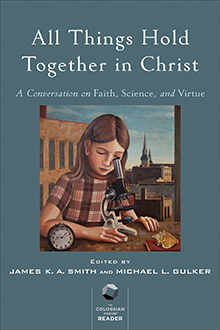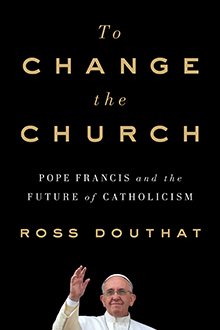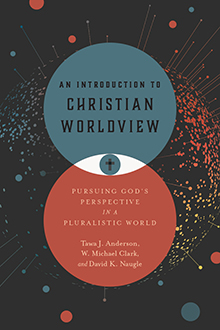 |
 |
 |
 |
When Your Twenties Are Darker Than You Expected by Paul Maxwell (Amazon Kindle 2018, $2.99)
Review by Sarah Haywood
Twentysomethings experience a decade that is often dark and difficult to navigate, where the expectations of childhood disappear and responsibility arises. The “darkness” of the this stage is real, and in learning to engage it, according to Paul Maxwell, “the best practical theology will uncover the connection between our darkest moments and the person of Christ himself.”
In When Your Twenties Are Darker Than You Expected, Maxwell addresses this “quarter life crisis.” Highlighting the presence of anxiety and depression to loneliness and grief, he encourages readers to learn to read these emotions as signs that point to something else. Maxwell positions each plausible emotional and spiritual struggle next to what God says about them. In the challenge of a quarter life crisis, he says, “[God] embarks with us on this journey that feels lonely and unforgiving and emotionally brutal.”
Maxwell honestly and carefully points to the promises of Scripture and the presence of God in the darkness, reminding readers to pray, “Turn our eyes to what we know, when our heads, our bodies, and our emotions refuse to accept your place in our fears.”
All Things Hold Together in Christ: A Conversation on Faith, Science and Virtue by James K.A. Smith and Michael L. Gulker, eds. (Baker 2018, $29.99)
A flaw sits at the center of (academic) discussions about faith and science, according to philosopher James K.A. Smith. He writes about this flaw, suggesting that prevailing academic approach to these topics views science as fixed data and theology as flexible.
In an effort to reframe the discussion, he and Michael L. Gulker gathered writings for the new book, All Things Hold Together in Christ: A Conversation on Faith, Science and Virtue.
The guiding principle of the book, which includes essays from theologians such as Timothy George, Stanley Hauerwas, Mark Noll, N. T. Wright, and Alasdair MacIntyre, is Colossians 1:17 (“all things hold together in Christ”), which the contributors apply to the often-antagonistic relationship of science and theology.
To Change the Church: Pope Francis and the Future of Catholicism by Ross Douthat (Simon & Schuster 2018, $26)
Review by Doug Hanna
In his new book, New York Times columnist and devoted Catholic Ross Douthat offers an insightful look at the last 75 years of the Catholic Church’s history. From that foundation, Douthat places the first five years of Francis’s pontificate in its proper context and begins to imagine the Catholic Church’s trajectory for the next 20 years. To Change the Church is not merely an exposé about how Pope Francis might lead the world’s largest church. It is rather a thorough, but not tedious, introduction to the current controversies of global Catholicism.
As Douthat shows, the future of the Catholic Church is anyone’s game. Pope Francis may lead the church leftward into a liberal faith or might allow the church to idle in an unsure moderate position, creating a leadership vacuum for conservatives to press their own vision forward.
Seminary students will find To Change the Church to be an easy read that provides a realistic and historical foundation for academic and evangelistic engagement of Roman Catholicism.
An Introduction to Christian Worldview: Pursuing God’s Perspective in a Pluralistic World by Tawa J. Anderson, W. Michael Clark, and David K. Naugle (IVP Academic 2017; $31.50)
Review by Gabriel Reyes-Ordeix
Three friends — John Luther, Charles Dawkins and Shirley Chopra — visit a nature preserve in the African Serengeti, and as they experience the majestic beauty of the African wildlife, each has a different reaction. John Luther says, “The Lord God has created an amazing array of creatures that declare his glory!” Charles Dawkins responds, “An amazing array of creatures, surely. But you err in ascribing their existence to a Creator. They are the result of the guided purposeless random mutation and natural selection.” To this, Shirley Chopra replies, “I pray you would be enlightened to the full reality. These creatures too bear the same spark of divinity that lies within you and me. We are all potential gods and goddesses.” This story guides the rest of the book in illustrating that these three friends experienced the same objective truth, but because of their vastly different perspectives, the three see different things as their worldviews clash.
Anderson, Clark, and Naugle divide An Introduction to Christian Worldview into three sections, the first focusing on a clear and simple definition of worldview; the second is dedicated to Christian worldview; the third closes with the alternatives in Western philosophy and global religions.
Their very helpful definition of worldview as “the conceptual lens through which we see, understand, and interpret the world and our place within it” evidences the clarity, sensibility and directness of this book. The authors often combine elements of popular culture like The Matrix or Star Wars in combination with Greek lexicon and classic philosophical rhetoric to make this book a refreshing, complete introduction to Christian worldview full of application to the Christian life, and to devotional life.





